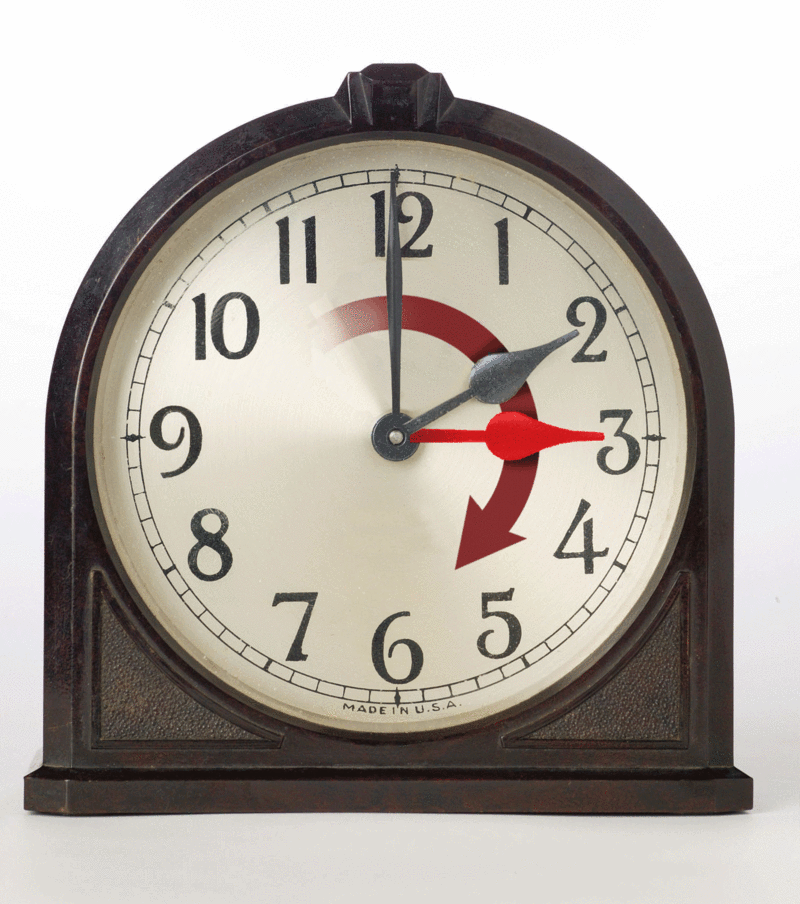 |
| [©iStockphoto.com/karen roach] |
What is Summer Time?
Summer time, which is also called daylight saving time, is a practice of advancing clocks during lighter months so that there is more daylight in the evenings and less in the mornings. Typically, clocks are adjusted forward one hour near the start of Spring and are adjusted backward near the end of Autumn. In short, we start to live earlier during summer time.
 |
| [Wikipedia] |
Summer time is estimated to be adopted in about 75 countries, mainly in North American countries and European ones. The starting time and the ending time differs among countries. For example, the United Kingdom starts summer time on the last Sunday of March, while the United States starts on the second Sunday of March.
summer time also differs between the northern hemisphere and the southern one. Southern hemisphere summer goes in the opposite way. Australia, for example, starts summer time on the first Sunday of October and ends on the first Sunday of April.
When did it First Start?
The person who first devised such idea was Benjamin Franklin. In 1784, he suggested getting up earlier in the morning so that people can use their morning time more economically and use less candles, which leads to economic profit. However, it was not him who directly suggested adjusting clocks forward and backward.
It was the prominent English builder and outdoorsman William Willett who conceived summer time in 1905. He was an avid golfer, and he thought he could enjoy golf more in the daylight by adjusting clocks forward. Two years later, he published a proposal, but it was not passed right away.
The first time when summer time started to use was during World War I, on 30 April 1916. Germany and its World War allies, Austria-Hungary, were the first to use summer time in order to conserve coal and guard themselves against air-raid during wartime. Soon after that, Britain followed adopting summer time. Russia and other European countries adopted it in the following year, and the United States did in 1918.
Summer time was abandoned after World War I had ended, but it started again during World War II. After the war, it became widely adopted starting in the 1970s, particularly in North America and Europe.
Pros and Cons of Summer Time
The advantages of summer times mostly come from enjoying more daylight. Then what kinds of effect are there with more daylight?
The main advantage of summer time is economic profit. As Benjamin Franklin said concerning using less candles, more daylight leads to saving energy. If summer time is in effect, there would be longer day time and less nighttime. Moreover, there would be less time when lights are on. That leads to saving energy.
Another advantage is that summer time is better for health. Since summer time provides people with more time for outdoor exercise, it could promote people to do more exercise and to expose themselves to sunlight, which is good for health. Being less nighttime, summer time could also reduce depression, which is usually triggered during nighttime. Plus, traffic accidents could be reduced since there is more daytime when people can see clearer.
On the other hand, there are opponents against summer time who argue about shortcomings. Opponents are usually farmers who usually work on schedule set by Sun. They argue that grain is best harvested after dew evaporates, so going to fields and leaving them early is not that effective. Dairy farmers complain that cows are sensitive to the timing of milking, so they need to stick to the original time.
The most biggest shortcoming of summer time is its complexity. People should remember summer time and synchronize their clocks twice a year, which is time-consuming. Also, people among many other countries should consider whether one another's countries are using summer time or not since not all the countries adopt summer time. It also takes much effort and time to adjust time within computer system, which could disrupt computer system.
So, Is it really effective?
It is not clear if summer time is effective or not. Each country is in different conditions and different circumstances, so the effect of summer time may well differ among each country. I think summer time is also one of the policies which policymakers adopt. It means, therefore, summer time can also be largely effective or ineffective depending on how well the government manages it.
So, how do you think? Do you think summer time should be adopted or not?
references
http://en.wikipedia.org/wiki/Daylight_saving_time
http://www.timeanddate.com/time/dst/
http://www.socialstudiesforkids.com/articles/time/daylightsavingtime.htm

Yeah billy! Nice post, i've probably told you before but my state uses DST. I much prefer the other 6 months of the year when its daylight for longer. Sunset at 8:30pm! Oh yeah! haha. :)
답글삭제Samuel.
Hey Sammy! Thanks for your comment! ;) yeah I think I've heard about that from you before! I think summer time is quite a nice idea. Since Korea doesn't use it, I'm wondering what it would be like with summer time! haha. Thanks anyway! ;)
삭제